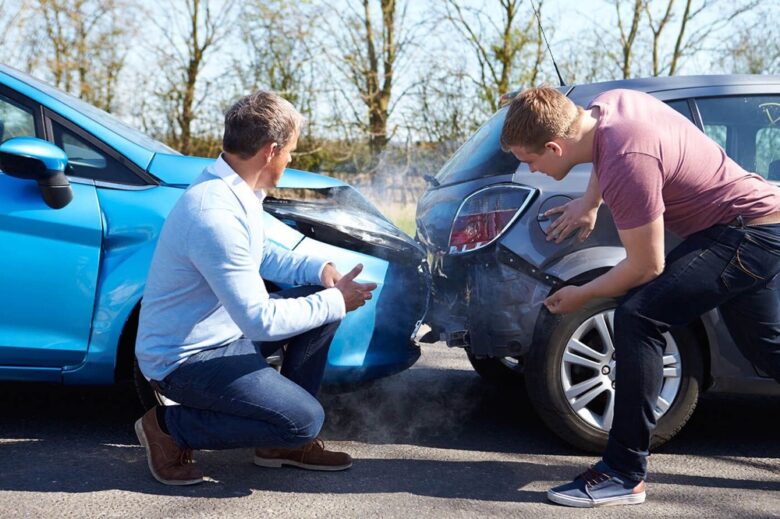A car accident can have a major impact on your insurance rates. Understanding this is important for keeping track of your policy and costs. There are many factors that can cause your insurance rates to change after an accident. Some of these factors include the severity of the accident, how well you drove, and the rules of your insurance company. Let’s talk about how accidents can increase or decrease your car insurance rates and what you can do to avoid these problems.
How Accidents Can Change Your Rates:
When you file a claim after an accident, your insurance company will look at the details to determine who was responsible and how much money you will lose. Your insurance company may increase your rates if you are found to be at fault or if a claim is filed. The reason for the increase is that driving a car involved in an accident is statistically considered more dangerous. This means that your insurance company thinks you are more likely to make a claim in the future, which could increase your premiums.
Severity of the Accident:
The severity of the accident determines how much your insurance rates will increase. A minor accident, such as a fender bender, may not increase your insurance premiums as much as a more serious accident that causes a lot of damage or injury. Insurance companies look at the cost of claims, including medical bills and repair costs, and adjust your rates based on those costs and the number of claims you’ve had in the past.
Driving History:
Another important factor that affects how an accident affects your rates is your past accidents. If you have had many accidents or traffic violations in the past, your insurance company may consider you a higher risk and increase your rates further. On the other hand, if you have a good driving record with few or no collisions, the impact on your rates may not be as significant. Insurance companies use your overall driving data to determine how risky you are, and then adjust your premiums to reflect this.
Insurance Company Rules:
Different insurance companies have different rules for responding to rate increases after a car accident. Some companies may have programs that allow you to be forgiven for your first accident so that it doesn’t affect your rates. Typically, drivers with a good track record can participate in these programs, but there may be some conditions or requirements. Check with your insurance company to see if they have such plans and how they may affect you.
How Long will the Interest Rate Increase Last:
You should also consider how long an accident will keep your insurance rates high. Depending on the severity of the accident and how the insurance company handles it, an accident typically affects your premiums for three to five years. If you keep your driving record clean and don’t get into car accidents again, your rates can drop over time. A serious accident, on the other hand, can have consequences that last longer and have a greater impact on your rates.
Reduce Losses Caused by Accidents:
There are steps you can take to manage the impact of an accident on your insurance rates, and even learn from it if you’re concerned. You can find better insurance after an accident by looking around. Each insurance company handles rate increases differently, and if they see your updated risk profile, they may be able to offer you an affordable rate. Additionally, keeping a clean driving record after an accident can help demonstrate that the accident was an isolated incident and not a sign of a trend of risky behavior.
There may also be times when you need to consider changing your coverage options. For example, if you increase your deductible, your rates may drop, but if you have another accident, you will have to pay more. On the other hand, if your current insurance company has an accident forgiveness plan, you may want to stay with them to get this benefit.
Conclusion:
In general, accidents can have a major impact on your car insurance rates. Understanding what factors are involved will help you approach the process better. Knowing how an accident affects your premiums and taking steps to manage your coverage can help limit the impact and possibly even lower your overall costs. Keep in mind that each insurance company has its own rules and policies. So it’s important to talk to your insurance company and review your options to find the best way to handle your case.
FAQs:
1. What happens to my insurance rates after an accident?
If you are found to be at fault after a car accident, you may have to pay more for your insurance. Insurance companies consider drivers who get into accidents to be at greater risk, which can mean higher premiums.
2. Will all accident rates increase at the same rate?
No, the severity of the accident is a major problem. Smaller accidents may not cause as much of an increase as larger accidents that cause a lot of damage or injury.
3. How long does it take for my insurance rates to change after an accident?
Typically, an accident can increase or decrease your insurance rates for three to five years. The length of time may vary depending on the severity of the accident and the insurance company’s rules.
4. Does my previous driver’s license affect the increase in my rates after an accident?
Yes, your driving habits are important. If you have had many accidents or traffic violations in the past, your rates may be higher. On the other hand, having good driving habits can mitigate this effect.
5. Is there a way to keep my insurance rates from increasing too much after an accident?
Yes, that’s possible! Some things you can do are find a new insurance company, keep your driver’s license clean, and consider changes to your coverage, such as increasing your deductible.



